
Graduate Interview: Roger Teaching in Korea
In this article, we’ve had a chat with Roger from Canada, who spent 18 years teaching at the university level in South Korea. He’s shared his best insights on classroom life in Korea, and tips for aspiring university-level English teachers.
Teaching English abroad is a rewarding way to see the world, experience new cultures, and grow both personally and professionally. For many, it’s also a chance to explore new career paths and opportunities to make a real impact. Whether you’re coming from a different field or starting fresh, teaching can open doors you hadn’t considered before.
South Korea has long been a popular destination for English teachers, thanks to its competitive job market, vibrant cities, and rich cultural traditions. From public schools to universities, there are a variety of roles available for those looking to take the next step in their career.
Join us as Roger shares how he got started in teaching, what life was like on and off campus, and his advice for anyone considering a similar path.
About Roger:
Roger is an experienced English teacher who taught university-level English in South Korea for 18 years. Throughout his teaching career, he has developed and taught a range of courses, including English, Civic Education, and a Star Trek-themed ethics class, earning recognition from students, colleagues, and even public figures.
Name: Roger Thompson
Nationality: Canadian
Profession: English language teacher
Experience: 18+ years of teaching experience.
After nearly two decades in the classroom, Roger is now focusing on new opportunities as an online teacher while continuing to share his passion for education with learners around the world.
Roger’s interview:
💬 What made you decide to pursue English teaching, and how did you end up teaching in Korea?
“I was dissatisfied with my IT career and wanted a change, and I remember that a lot of my friends from university became ESL teachers in Asia. Korea has vast opportunities for foreign English teachers, and I had an interest in teaching in a good university.
In addition, my late father had visited Korea during his career in the Air Force, and he told me that the opportunities there for English teachers were great, and so I made the leap and ended up teaching at Kyung Hee University for 18 years.
At the time Korean Immigration didn’t require me to have a formal teaching credential, so I applied for a position at Kyung Hee University and was fortunate to be hired on a E-1 Professor’s Visa.”
💬 Could you tell us a little about your first experiences when arriving in Korea?
“My first impression of Korea was that most of the good things people say are actually true, at least most of the time. I am a tall guy, and at first I thought it would be hard to find clothes that fit, but I was pleased to find out about a district in Seoul called Itaewon, which has many shops and restaurants that cater to foreign residents and visitors.
I bought a number of custom-made suits, shirts, coats and blazers from a tailor shop called Dynasty Tailors, and the owner became a good friend over the years. He even made me a free pair of custom-made dress pants to thank me for all the business I provided him over the years. Korean business owners take good care of loyal customers and I really appreciate their generosity.
The first few years of teaching were a big adjustment for me, and although I did become an effective lecturer, I had to learn everything the hard way and there was a lot of trial and error before I became proficient in the classroom.
One thing that shocked me is that for many Korean students, no grade less than an A+ was good enough, and from my perspective that is setting the bar too high. In my case, when I was a freshman I got 100% on a mid-term exam in my Sociology course, which shocked the professor, but it was just an A, so I don’t get the obsession with the A+. Grade inflation was indeed a serious problem at my Korean university.”
💬 Where in Korea were you based, and what kind of institutions did you teach at?
“I was based in Yongin, a satellite city of Seoul in Gyeonggi province. Kyung Hee University is a top ten school in Korea, offering both undergraduate and post-graduate programs in many disciplines.”
💬 What was your role at Kyung Hee University Global Campus, and what were your students like?
“I taught English, Civic Education, which was renamed Global Citizen, and my groundbreaking Star Trek class called Ethics of the Future: Analyzing Science Fiction Films. My students were all undergraduates, and about 90% were Koreans, and the other students were from many other countries, including Canada, Norway, the United States, Romania, Russia, China, France, Japan and Colombia to name a few.
Students were typical undergraduates usually between 18 and 24 years old, and many of the men had already done mandatory military service. Classes were typically about 30-35 students, but my Star Trek classes sometimes had 60 students.”
💬 What kind of teaching qualifications do you possess?
“I have a diploma in Radio & TV Broadcasting, an honours degree in Sociology from the University of King’s College, and an MA in Political Science from Dalhousie University. I was a TA (teaching assistant) in university, and I graded papers and exams, plus I met with students during office hours, and so on. Once I actually filled in for one lecture when the professor was not able to teach, but that was the full extent of my teaching experience before coming to Korea.
I came home to Canada last year, and have since earned my 120-hour TESOL/TEFL certificate, 70-hour TEAL certificate, 80-hour TEOL certificate, as well as a We The People: Civic Engagement in a Constitutional Democracy certificate from Harvard University to be more competitive in today’s job market.”
Want to start your teaching career? Get TESOL/TEFL certified:
To professionally teach English overseas and online, you’ll need an accredited and recognised TESOL/TEFL certificate.
With World TESOL Academy’s dually accredited 120-hour TESOL/TEFL course, you’ll earn the essential skills and certification needed to launch your teaching career.
Or click here to get a free preview of the course.
.
💬 What did your typical teaching schedule look like?
“In March 2006 when I started at the university, I would typically teach 9 hours a week, with three classes that met twice a week. I also worked at the English Writing Clinic for extra money, and I also taught many classes during the summer and winter breaks that helped finance my travels to Japan, Hong Kong, Thailand, Canada, and South Africa.
I would usually prep for class in my office for about an hour for each class on the days I taught. I also had to keep office hours, 3 hours a week, so that I could advise my students on how to get better grades, get into graduate school, etc.“

💬 What was the classroom environment like at the university level in Korea? Any cultural differences or student expectations that stood out?
“Korean university classrooms are well-equipped with modern audio-visual tools, a computer, projector, and so on. Most classrooms had air conditioning/heating, but the aircon was never cool enough during the hot and humid Korean summers. During summer classes, I would not wear a suit like I did during the other semesters because the classrooms were just too hot. I made a point to look the part, and it was quite affordable to do so in Korea.
In Korea, it is sometimes difficult to get students to actively participate in class as students are told to let the professor do their job without interfering. As I said before some are obsessed with getting an A+, and that challenge must be met very diplomatically when somebody falls short of their goal.“
💬 What did you enjoy most about this teaching job? And what were some of the bigger challenges you faced?
“I really enjoyed my classes over the years. In my English classes, my focus was on teaching Charles Dickens’ novels especially ‘A Christmas Carol’ and ‘Oliver Twist’. Up to 90% of my evaluations were positive, and I was rewarded with a 24k gold medal for service to the university in 2016.
In 2013 I was offered a chance to develop a new curriculum for the school’s first English-language Civic Education class, which I snatched up and taught for 7 years. That class focused on the patriotic ideals of President John F. Kennedy and the civil rights activism of Atticus Finch, and it became the top-rated class in the whole Civic Education program. The course was praised by President Kennedy’s daughter Ambassador Caroline Kennedy, and she sent me a copy of her dad’s famous book Profiles In Courage. My class was also applauded by New York Time Bestselling novelist Admiral James Stavridis.
In 2014, I was asked to take over another new class about science fiction films when one of my colleagues left the university, and that became Korea’s first Star Trek class. I have been a Star Trek fan since I was a kid, and it was great to introduce the original series to many young Koreans who have never heard of the franchise, except for the 2009 reboot by JJ Abrams. That course became a campus phenomenon and was endorsed by bestselling author Mark A. Altman, author Susan Sackett, who was Gene Roddenberry’s executive assistant, and by Hollywood icon Ralph Senensky, who actually directed some pretty famous episodes of Star Trek.
The biggest challenge I had in that class was at the beginning when I only had DVDs with English subtitles only, and the class was quite difficult for some students until, thank goodness, Netflix Korea launched the series with Korean subtitles, which made the class more fun for everyone.“

💬 Could you share what it’s like living in Korea long-term, both as a teacher and in daily life?
“Having your own computer and an Internet connection make life much more livable for the foreign person in Korea. Being able to listen to Canadian radio stations on the Internet, and receive email from friends and family back home made it easier to adjust to living in another country.
My university did not provide housing to me, so I had to find my own place, but luckily there were many affordable apartments near the campus, so I had a pretty good life there most of the time. There is no sales tax and no tipping in Korea, and that makes life better for the middle-class individual like me. I was able to eat in my favourite Vietnamese restaurant almost daily, and Korean barbeque and Korean pizza are both delicious and cheap.
My main hobbies were writing about military history for various journals and travelling to other countries in the region, and I am a much better person as a result of all my travels both in Korea and to Japan, Hong Kong, Thailand, and South Africa.“
💬 Do you have any insider tips for navigating life in Korea
“I took some Korean lessons when I first arrived, but I wish I had learned more. Kyung Hee University did provide bilingual assistants to assist the foreign professors and that was immensely helpful.
Many universities outside Seoul do provide free apartments on or near the campuses, but Kyung Hee didn’t, so I had to ask Korean friends to assist me with this. I was able to find a real estate agent named Mr. Kang who spoke really good English (because he worked in the area near campus where many international students and faculty live) and my last two apartments I lived in were rented through his agency.
My advice is to learn the language as best you can, and make sure to be friendly to the locals because their help makes things much easier.“
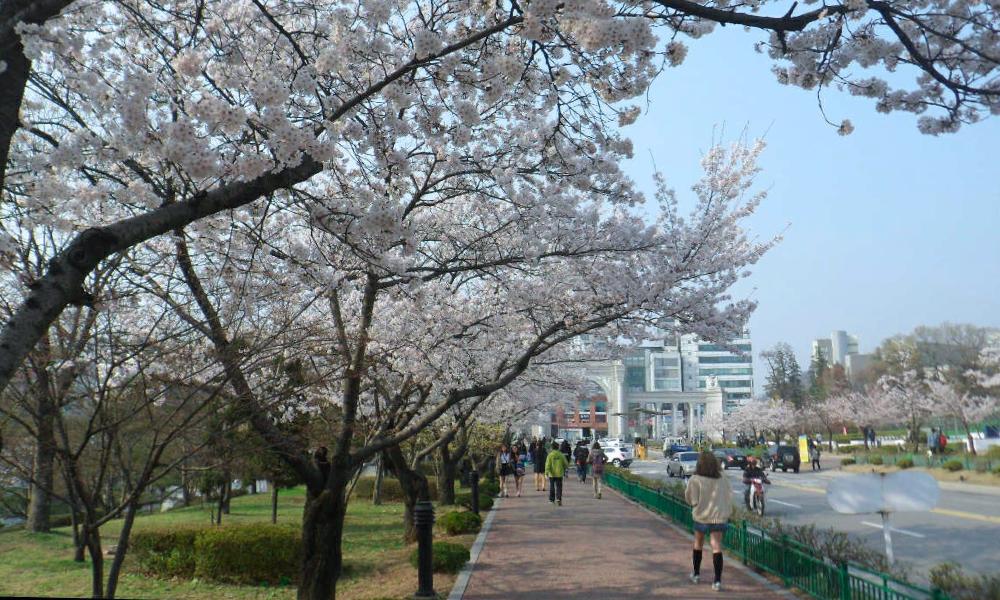
💬 Do you have any professional advice for teachers who are thinking about teaching in Korea?
“My university took pretty good care of me most of the time, and that was helpful in getting my visa, and paying my taxes was done by the school, and that was a relief. One thing that you should be aware of, though, that you may find that contracts may not be taken so seriously by Koreans than they are in Western countries, so it pays to make friends with Koreans as I did.“
💬 Now that you’ve earned your TESOL/TEFL qualification, what’s next in store for you? In which direction you see your teaching career heading?
“Now that I am back in Canada, I decided to get certified and become an online English tutor. So far, I have been accepted to two platforms (Skimatalk and Preply), and I’ve also launched my own website to make it easier for students to find me and book lessons.
With my certifications and 18 years of experience, I think the sky’s the limit for me now, and I look forward to continuing my teaching career!“
Final thoughts
Roger’s story is a reminder that taking a chance on something new can lead to a meaningful teaching career, whether overseas or online.
The path to becoming an English teacher doesn’t look the same for everyone. Some bring years of experience from other industries, while others start fresh with a desire to pursue something different. What matters most is your willingness to take on new challenges, develop your teaching skills, and build the experience needed to grow as a teacher.
If you’re ready to start your next teaching adventure, earning an accredited 120-hour TESOL/TEFL certificate can open the door to exciting new opportunities around the world.

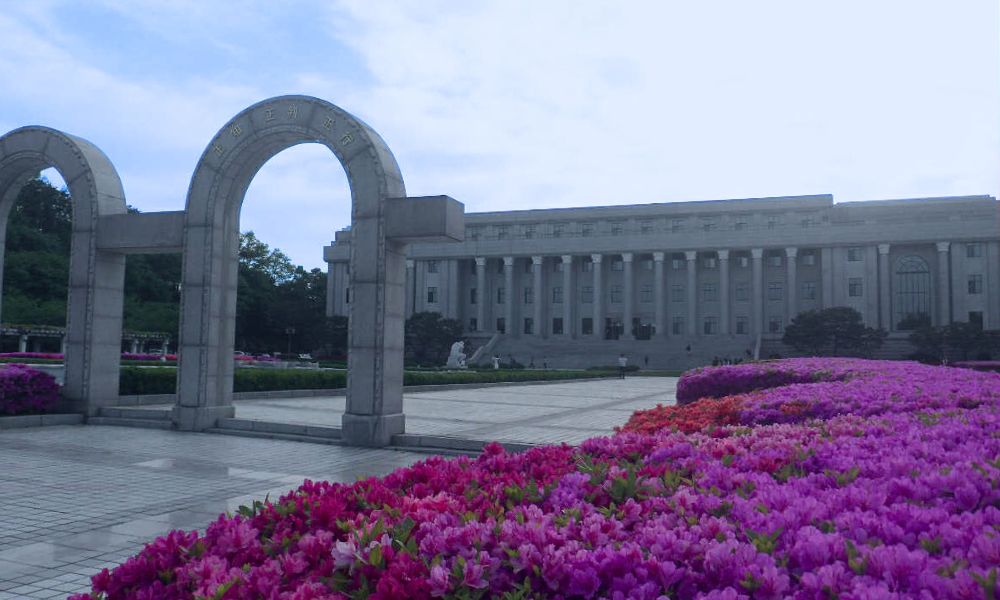

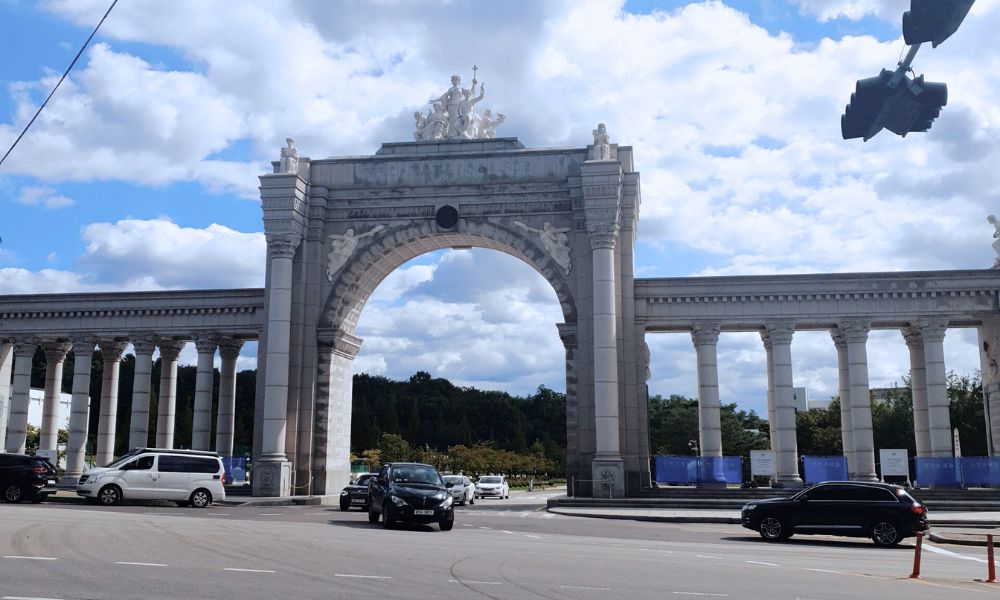


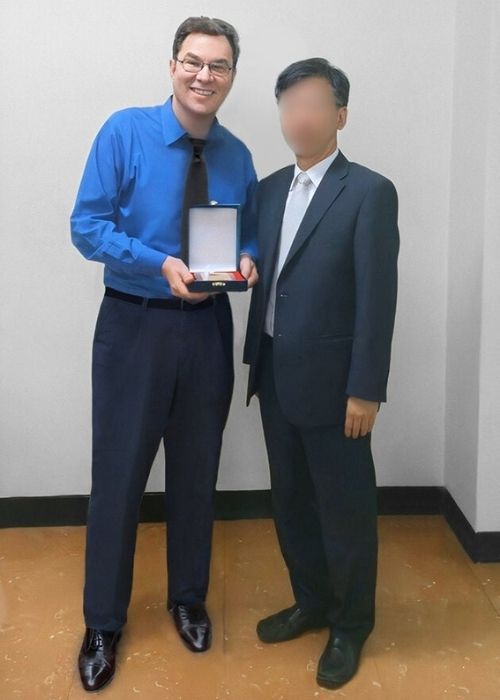



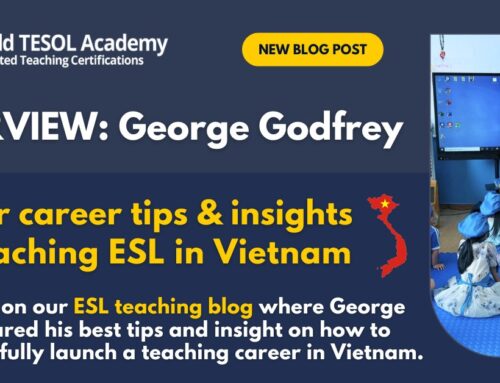
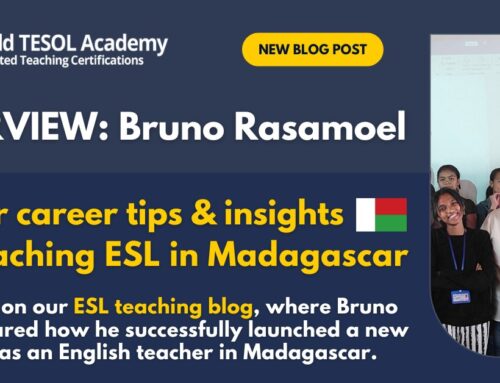
Leave A Comment